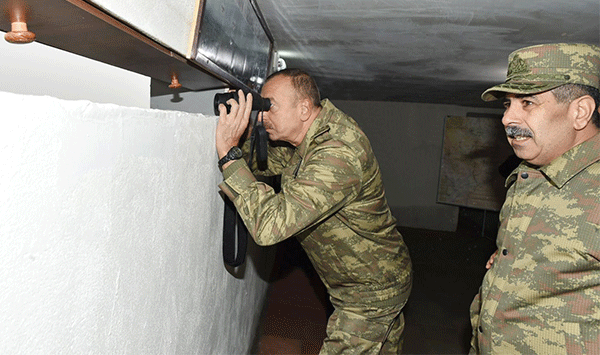Columnist of “Jamestown” Foundation, Armen Grigoryan, believes that expecting a change in this approach would be nonsense
– Mr. Grigoryan, Russian President Vladimir Putin has approved the Russian Federation government’s proposal on the creation of a joint military group with Armenia and instructed to sign it. According to the agreement, to ensure the security of each of the parties to the collective security in the Caucasus region, a united military group of the two countries is created which will be able to adequately respond to an armed attack as well as to “other security threats and challenges.” From which side of possible attacks will this united military group protect us, and what can be understood under the term “other threats to the security of sides?”
– Russia considers NATO and the ongoing democratization processes in post-Soviet countries a threat, the so-called “color revolutions”, and organizes its activities in compliance with this logic. Now, in parallel with the expansion of its presence in Armenia, Russia is also engaged in further militarization of Abkhazia and South Ossetia in compliance with its visions on confrontation to NATO. Captions: Columnist of the “Jamestown” Foundation, political analyst Armen Grigoryan
If we view the “other threats to the security of parties”, it is obvious that there is one potential threat to Russia’s interests and the government of Armenia and it is the Armenian society, and it is no coincidence that Russia is constantly demanding to take measures against the supporters of the development of relations with Western structures. Armenia, the state not the regime administration does not have a common threat or opponent with Russia. NATO is not a threat if of course Armenia is not involved in hostile actions because of the politics of Moscow and Armenian authorities. Azerbaijan is a threat for Armenia whom Russia, of course, does not consider a threat, equipping against Armenia, and Russia itself.
Read also
– According to the same agreement, the RA Supreme Commander of Armed Forces will be appointing the commander of the joint military group in agreement with the commander of Armed Forces of Russia. During the peacetime, the armed group will be placed under the General Staff of the Armed Forces of Armenia while in the wartime, depending on the situation, also under the “commander of the troops of the Southern Okrug (administrative division) of Russia.” And perhaps the most important point is that “the agreement is not directed against any third country.” Can this refer to the prevention of possible encroachments by Azerbaijan against the borders of Armenia? And if “the agreement is not directed against any third country”, then whom will they restrain and how?
– In the war situation, placing the armed group under Russian commandment is an additional proof of the fact that it will solely serve the interests of Russia. Russia (as well as other members of the CSTO) has never considered the encroachments by Azerbaijan against the borders of Armenia a threat, and expecting a change in this approach will be nonsense.
– To contribute to the development of tourism, it is envisaged to adopt a decision which will enable the citizens of Russia to visit Armenia with internal passports. In this context, it is envisaged to sign an agreement between the governments of Armenia and Russia aimed at the development of interregional cooperation. Is the entry of Russians to Armenia with internal passports just a matter of expanding the tourism potentials, or we witness a phase for the establishment of new quality relations between Armenia and Russia?
– If truly a goal for the development of tourism is pursued, opening a budget flights to Europe at least 2 times a week would have a greater impact. In addition, for the development of tourism, it is also possible to enable the citizens of other countries an access without a visa. In particular, the EU citizens have similar privilege in a number of countries. It remains to mention that Armenia’s government has preferred to accelerate the process of turning the country to a Russian governorate for the sake to ensure its reproduction.
– The issue of US-Russia relations in the context of the US presidential elections and the victory of Trump has become one of the most discussed topics. Can we report an ease in the Russian-US relations? What will be Trump’s policy towards the South Caucasus countries, and what can be anticipated in US-Armenia relations?
– The prospect of easing Russia-US relations will be apparent when the candidacies of the members of the new US Administration are approved. Perhaps, the euphoria existing in Moscow will blow up. In any case, Trump’s striving to find mutual agreement with various wings of the Republican Party is already outlined, and we must hope that the US will conduct a self-isolation policy. As for Armenia-US relations, the entire responsibility falls on the authorities of Armenia for their progress or, on the contrary, regression, which views the relations with not only the US but also EU, Iran and others from the angle of “not contradicting the commitments assumed before the Eurasian Union”, by servicing the interests of Russia rather than Armenia.
EMMA GABRIELYAN





















































